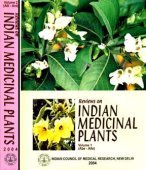Iri, Īri: 5 definitions
Introduction:
Iri means something in Hinduism, Sanskrit, Buddhism, Pali, biology, Tamil. If you want to know the exact meaning, history, etymology or English translation of this term then check out the descriptions on this page. Add your comment or reference to a book if you want to contribute to this summary article.
Images (photo gallery)
In Hinduism
Purana and Itihasa (epic history)
Source: archive.org: Puranic EncyclopediaĪri (ईरि).—There are hundred Kings in the palace of Yama worshipping him, and they are called the Īris. (Mahābhārata Sabhā Parva, Chapter 8, Verse 23).

The Purana (पुराण, purāṇas) refers to Sanskrit literature preserving ancient India’s vast cultural history, including historical legends, religious ceremonies, various arts and sciences. The eighteen mahapuranas total over 400,000 shlokas (metrical couplets) and date to at least several centuries BCE.
Biology (plants and animals)
Source: Google Books: CRC World Dictionary (Regional names)1) Iri in India is the name of a plant defined with Echinochloa crus-galli in various botanical sources. This page contains potential references in Ayurveda, modern medicine, and other folk traditions or local practices It has the synonym Panicum crusgalli var. stagninum Trimen ex Hook.f., non Panicum stagninum Retz. (among others).
2) Iri in Kenya is also identified with Grewia tembensis.
3) Iri is also identified with Grewia tenax It has the synonym Chadara erythraea Schweinf. (etc.).
4) Iri in Papua New Guinea is also identified with Falcataria moluccana It has the synonym Albizia fulva Lane-Poole (etc.).
5) Iri in South America is also identified with Nicotiana tabacum It has the synonym Nicotiana chinensis Fischer ex Lehmann (etc.).
Example references for further research on medicinal uses or toxicity (see latin names for full list):
· Encyclopédie Méthodique, Botanique (1816)
· Agronomia Lusitana (1940)
· Flora de Veracruz (1986)
· Flore Générale de Belgique, Spermatophyes (1855)
· Rhodora (1916)
· Univ. Calif. Publ. Bot. (1912)
If you are looking for specific details regarding Iri, for example diet and recipes, extract dosage, pregnancy safety, health benefits, chemical composition, side effects, have a look at these references.

This sections includes definitions from the five kingdoms of living things: Animals, Plants, Fungi, Protists and Monera. It will include both the official binomial nomenclature (scientific names usually in Latin) as well as regional spellings and variants.
Languages of India and abroad
Pali-English dictionary
Source: BuddhaSasana: Concise Pali-English Dictionaryīri : (aor. of īrati) moved; shook; stirred.

Pali is the language of the Tipiṭaka, which is the sacred canon of Theravāda Buddhism and contains much of the Buddha’s speech. Closeley related to Sanskrit, both languages are used interchangeably between religions.
Kannada-English dictionary
Source: Alar: Kannada-English corpusIri (ಇರಿ):—
1) [verb] to ooze a) to flow or leak out slowly, as through very small holes; to seep; b) to give forth moisture, as through pores.
2) [verb] to draw or squeeze milk from the mammary glands of (a cow, etc.).
--- OR ---
Iri (ಇರಿ):—
1) [verb] to stab; to pierce; to attack with the horn (said of a cow, bull etc.) or with a long pointed weapon.
2) [verb] to fight (with a weapon) in battle.
3) [verb] to kill.
4) [verb] to find the product of two or more quantities by multiplication; to multiply.
5) [verb] to engrave letters, symbols on the surface (of a stone, metal plate etc.).
6) [verb] to cause to suffer a smarting pain with sharp criticism.
7) [verb] ಇರಿದಾಡು [iridadu] iridāḍu to engage in mutual stabbing; ಇರಿದುಹಾಕು [iriduhaku] iriduhāku to stab (to death); ಇರಿದೋಡಿಸು [iridodisu] iridōḍisu to defeat in a (physical) combat and drive away.
--- OR ---
Iri (ಇರಿ):—[noun] the flow of milk, flowing out when squeezed out from the mammary glands of a cow, etc.
--- OR ---
Iṟi (ಇಱಿ):—
1) [verb] to attack with the horn (said of a cow, bull etc.) or with a long pointed weapon; to stab; to pierce.
2) [verb] to fight (with a weapon) in battle.
3) [verb] to kill.
4) [verb] to find the product of by multiplication; to multiply.
5) [verb] to engrave letters on (a stone, metal plate etc.).
6) [verb] to cause to suffer or smarting pain with sharp criticism.
7) [verb] ಇಱಿದಾಡು [iridadu] iridāḍu to engage in mutual stabbing; 2. (animals) to strike or push with the head or horns; to ram with the head; to butt; ಇಱಿದೋಡಿಸು [iridodisu] iridōḍisu to defeat in a (physical) combat and drive away; ಇಱಿಯೆಪಡು [iriyepadu] iṛiyepaḍu to be stabbed; ಇಱಿವಬೆಡಂಗ [irivabedamga] iṛivabeḍaŋga a title ' he who is very skilled in mutual combat with sword'; ಇಱಿವರ್ತಿಗಂಡ [irivartigamda] irivartigaṇḍa a title 'he who loves to fight in a battle; ಇಱಿವಾಳ್ [irival] iṛivāḷ a title 'a bold soldier'.
--- OR ---
Iṟi (ಇಱಿ):—[verb] (a knot, a tied hair) to get loosened and become loosely spread.
--- OR ---
Iṟi (ಇಱಿ):—
1) [noun] a striking of one thing against another; blow or impact of an ax, whip, etc. a stroke.
2) [noun] the act of killing.
3) [noun] open armed conflict between countries or between factions within the same country; a war.
--- OR ---
Iṟi (ಇಱಿ):—
1) [noun] any ruminant belonging to the family of Cervidae; a deer.
2) [noun] ಇಱಿಯಕತ್ತುರಿ [iriyakatturi] iriya katturi a substance with a strong, penetrating odour, obtained from a small sac (musk bag) under the skin of the abdomen in the male musk deer which is used as the basis of numerous perfumes; musk.
--- OR ---
Īri (ಈರಿ):—[noun] = ಈಲಿ [ili]2.
--- OR ---
Īri (ಈರಿ):—[noun] the tree Feronia limonia (= F. elephantum) of Rutaceae family; wood apple; elephant apple.
Kannada is a Dravidian language (as opposed to the Indo-European language family) mainly spoken in the southwestern region of India.
Tamil dictionary
Source: DDSA: University of Madras: Tamil LexiconIri (இரி) [irital] 4 intransitive verb
1. To be destroyed, ruined; கெடுதல். மாறிரியச்சீறி [keduthal. maririyachiri] (புறப்பொருள்வெண்பாமாலை [purapporulvenpamalai] 2, 9).
2. To retreat; to flee away, as a defeated army; to scamper away through fear; ஓடுதல். புனலொழுகப் புள்ளிரியும் [oduthal. punalozhugap pulliriyum] (நாலடியார் [naladiyar] 212).
3. To fall away, as a garment; to drop; to recede; விலகு தல். உத்தரியங்களு மிரிய வோடுவார் [vilagu thal. uthariyangalu miriya voduvar] (கம்பராமாயணம் ஊர்தேடு. [kambaramayanam urthedu.] 51).
4. To drop, as perspiration; to ebb, as the tide; வடிதல். [vadithal.]
5. To fear, dread; அஞ்சுதல். (திவா.) [anchuthal. (thiva.)]
--- OR ---
Iri (இரி) [irittal] 11 transitive verb caus. of இரி¹-. [iri¹-.]
1. To rout, defeat; தோற்றோடச் செய்தல். [thorrodas seythal.]
2. To destroy, ruin; to dispel; கெடுத்தல். வெஞ்சிலைக் காய்ந்திரிக்கும் புருவக்கருங்கண்ணியர் [keduthal. venchilaig kaynthirikkum puruvakkarunganniyar] (சீவகசிந்தாமணி [sivagasindamani] 1769).
3. To drive away, scare away; ஓட்டுதல். மள்னர் குழூஉக்குரல் . . . அன்னமிரிக்கும் [ottuthal. malnar kuzhuukkural . . . annamirikkum] (கம்பராமாயணம் நாட். [kambaramayanam nad.] 32).
--- OR ---
Īri (ஈரி) noun < இரண்டு. [irandu.] A play of girls, usually with molucca beans, in which first two and then more beans are taken up together from the ground while one bean is tossed in the air; மகளிர் விளையாட்டி லொன்று. [magalir vilaiyatti lonru.]
--- OR ---
Īri (ஈரி) noun < ஈர்²-. [ir²-.]
1. Rags, torn cloths; கந்தை. [kanthai.]
2. Fibres between the pulps in a jack-fruit; பலாக்காய்த்தும்பு. [palakkaythumbu.]
--- OR ---
Īri (ஈரி) [īrittal] 11 intransitive verb < ஈர்¹. [ir¹.] [Malayalam: īri.]
1. To become wet, moist, damp, cool; ஈரமா தல். சோறு ஈரித்துவிட்டது. [irama thal. soru irithuvittathu.]
2. To be cool, as a breeze; to be benumbed, or stiffened, by cold or disease; குளிர்தல். ஈரித்த தென்றல் [kulirthal. iritha thenral] (குமரகுருபரசுவாமிகள் பத்துப்பாட்டு: மதுரைக்காஞ்சி [kumaraguruparasuvamigal pathuppattu: mathuraikkanchi] 31).
--- OR ---
Īri (ஈரி) noun < idem. Loving, affectionate woman; மனக்கனிவுள்ளவள். என்கண்ணனுக்கென் றீரியா யிருப்பாள் [manakkanivullaval. enkannanukken ririya yiruppal] (நாலாயிர திவ்யப்பிரபந்தம் திருவாய்மொழி [nalayira thivyappirapandam thiruvaymozhi] 6, 7, 9).
Tamil is an ancient language of India from the Dravidian family spoken by roughly 250 million people mainly in southern India and Sri Lanka.
See also (Relevant definitions)
Starts with (+111): Ir-ilaipayir, Iria, Iriartea deltoidea, Iriban, Iribiki, Irical, Iricu, Iridi, Irigana, Irigara, Irigatti, Irigelasa, Irigo, Irigormosso, Iriguli, Iriha, Irika, Irikam, Irikavana, Irike.
Ends with (+1601): Abandiri, Abbhokiri, Abbhuggiri, Abbhukkiri, Abdagiri, Abhashiri, Abhayagiri, Abhiri, Abhragiri, Abhyudgataprabhashiri, Abjavairi, Abjiri, Acariri, Accattiri, Acchagiri, Acciri, Acuramantiri, Adakilgiri, Addaviri, Adigiri.
Full-text (+158): Bahutalavasha, Manguie iri, Chalkumra, Bena iri, Vueburi iri, Kohane iri, Mogo iri, Mori iri, Kodra iri, Iris suaveolens, Sifile iri, Virginia iris, Blue flag iris, Bana iri, Moro iri, Tesmamentok, Ti'a'iri, Vernal iris, Bowltube iris, Iris tenuissima.
Relevant text
Search found 28 books and stories containing Iri, Eeri, Īri, Iṟi; (plurals include: Iris, Eeris, Īris, Iṟis). You can also click to the full overview containing English textual excerpts. Below are direct links for the most relevant articles:
The Wayward Woman in the “Serious < [January – March 1992]
The Search for Identity in Bernard Malamud's The Natural < [January - March 1976]
You have Never Spared Me < [October – December 1991]
Rig Veda (translation and commentary) (by H. H. Wilson)
Rig Veda 5.87.3 < [Sukta 87]
Sushruta Samhita, Volume 6: Uttara-tantra (by Kaviraj Kunja Lal Bhishagratna)
Chapter V - Pathology of the diseases of the black part of the eye < [Canto I - Shalakya-tantra (ears, eyes, nose, mouth and throat)]
Chapter IV - Pathology of the diseases of the sclerotic coat < [Canto I - Shalakya-tantra (ears, eyes, nose, mouth and throat)]
Chapter XV - Treatment of eye-diseases which require Excision < [Canto I - Shalakya-tantra (ears, eyes, nose, mouth and throat)]
The Garuda Purana (by Manmatha Nath Dutt)
Chapter CLXXI - The Nidanam of diseases of the eyes < [Dhanvantari Samhita]
Chapter CXLVI - Description of the Nidanam of all the diseases < [Dhanvantari Samhita]
Jnaneshwari (Bhavartha Dipika) (by Ramchandra Keshav Bhagwat)
Verse 11.22 < [Chapter 11 - Vishvarupa-darshana-yoga]
Mahabharata (English) (by Kisari Mohan Ganguli)
Section VIII < [Lokapala Sabhakhayana Parva]
Related products

